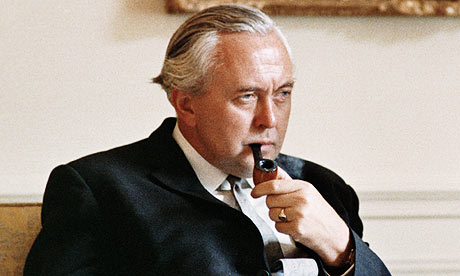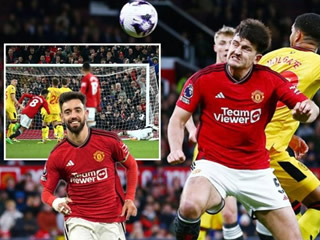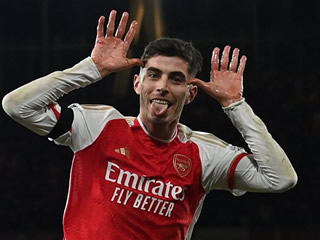The World Cup defeat that lost an election
Posted Wednesday, April 21, 2010 by BBC.com
England's unexpected loss to West Germany in the 1970 World Cup quarter-finals came just four days before voters dumped Labour's Harold Wilson out of office

Labour's Harold Wilson saw the mood of the British public turn against him when England were knocked out of the 1970 World Cup four days before polling day.
More than a few times lately I've heard repeated with irrefutable certainty the myth that the national feelgood factor created by England winning the football World Cup in 1966 helped to carry Harold Wilson's Labour party to victory in the general election of that year.
Although the wily spinmeister Wilson undoubtedly milked England's triumph for all he was worth, the fantasy is simply not true – as the two dates easily show: 1966 general election, 31 March; 1966 World Cup final, 30 July, 17 weeks later.
There is, however, a distinct possibility that the result of the general election after that, four years later in the summer of 1970 when Edward Heath's Conservatives so surprisingly tipped Wilson out of Downing Street, may well have been influenced by England's sudden and generally unexpected quarter-final defeat by West Germany in the 1970 World Cup quarter-final in Mexico just four days before the poll. Date of 1970 general election, 18 June; date of that shock-horror quarter-final (England 2, West Germany 3, after extra‑time), 14 June.
When Wilson called the election for three weeks hence 39 Mays ago, Labour was holding a 7.5-point lead in the Gallup poll after confidently clearing the field in local elections earlier that month. As well as the cocksure presumption that the manager Alf Ramsey's 1970 England team was sharper and keener than the one which had won the Cup four years earlier, for bonny good measure a welcome spring heatwave had been forecast to continue warming the country's cockles right up to polling day and beyond. In a rather more intense tropical heat in Guadalajara on 2 June England (including six "imperishables" from 1966: Banks, Moore, Ball, Hurst, Peters and Bobby Charlton) began their defence of the trophy with a comfortable enough 1-0 victory in their first group match against Romania. They were to beat the Czechs by the same score and, in between, play a toe‑to-toe classic against Pelé's Brazil in which, although losing narrowly, they had shown such nerveless assurance as to be confident of reversing the result when the two sides met again in the final which, most thought, they surely would.
Twenty-two minutes before the end of the quarter-final, England led 2-0, the Germans seemingly dead and buried. Yet England blew it. To save their legs for the upcoming semi (which would be against Italy on 17 June), Ramsey substituted Charlton and Peters. But the goalkeeper Peter Bonetti, an 11th‑hour replacement for Banks, who was sick, committed three howlers: 3-2 to the cartwheeling Germans, disbelieving despondency all over faraway England, where, four days later, Wilson's Labour lose 60 seats, Heath's Conservatives gain 65 for a Tory majority of 43 seats over Labour and 31 seats overall.
So Heath was summoned for Friday teatime at the Palace (Herself hotfooting back from Ascot), as Wilson categorically pooh-poohed any Mexican connection – "governance of a country has nothing to do with a study of its football fixtures" – but years later in his memoirs Denis Healey, then defence minister and later chancellor, let slip that as early as that April the Premier had called a strategy meeting at Chequers "in which Harold asked us to consider whether the government would suffer if the England footballers were defeated on the eve of polling day?" Even more explicit in his published reflections of the period was serious football fan (Grimsby Town) Tony Crosland, then local government minister and later foreign secretary, who blamed the defeat "on a mix of party complacency and the disgruntled Match of the Day millions".
Nor was Wilson's minister of sport, former League referee Denis Howell, in any doubt. "The moment goalkeeper Bonetti made his third and final hash of it on the Sunday, everything simultaneously began to go wrong for Labour for the following Thursday," he wrote in his retirement memoir all of 20 years later.
On the Monday morning Howell and home secretary and aesthete Roy Jenkins, held a massed factory-gate meeting in Birmingham: "Roy was totally bemused that no question concerned either trade figures nor immigration, but solely the football and whether Ramsey or Bonetti was the major culprit. I tried to be good-humoured about my answers, but for the first time I had real doubts and knew the mood was changing fast – and afterwards my wife Brenda came back from canvassing and said: 'I don't like the smell of it at all; it's just like 1959 all over again."
Nineteen-fifty-nine, of course, had been a fabled Tory landslide.
Photos
More»Meet Jude Bellingham's stunning girlfriend Laura
Thursday April 25 2024[PICTURE SPECIAL] Man Utd 4 - 2 Sheffield United
Thursday April 25 2024[PICTURE SPECIAL] Arsenal 5-0 Chelsea
Wednesday April 24 2024



Your Say